Tour de France tech: The new bikes, tech and trends from this year's race
What the pro riders, mechanics and manufacturers are doing at the top of the sport
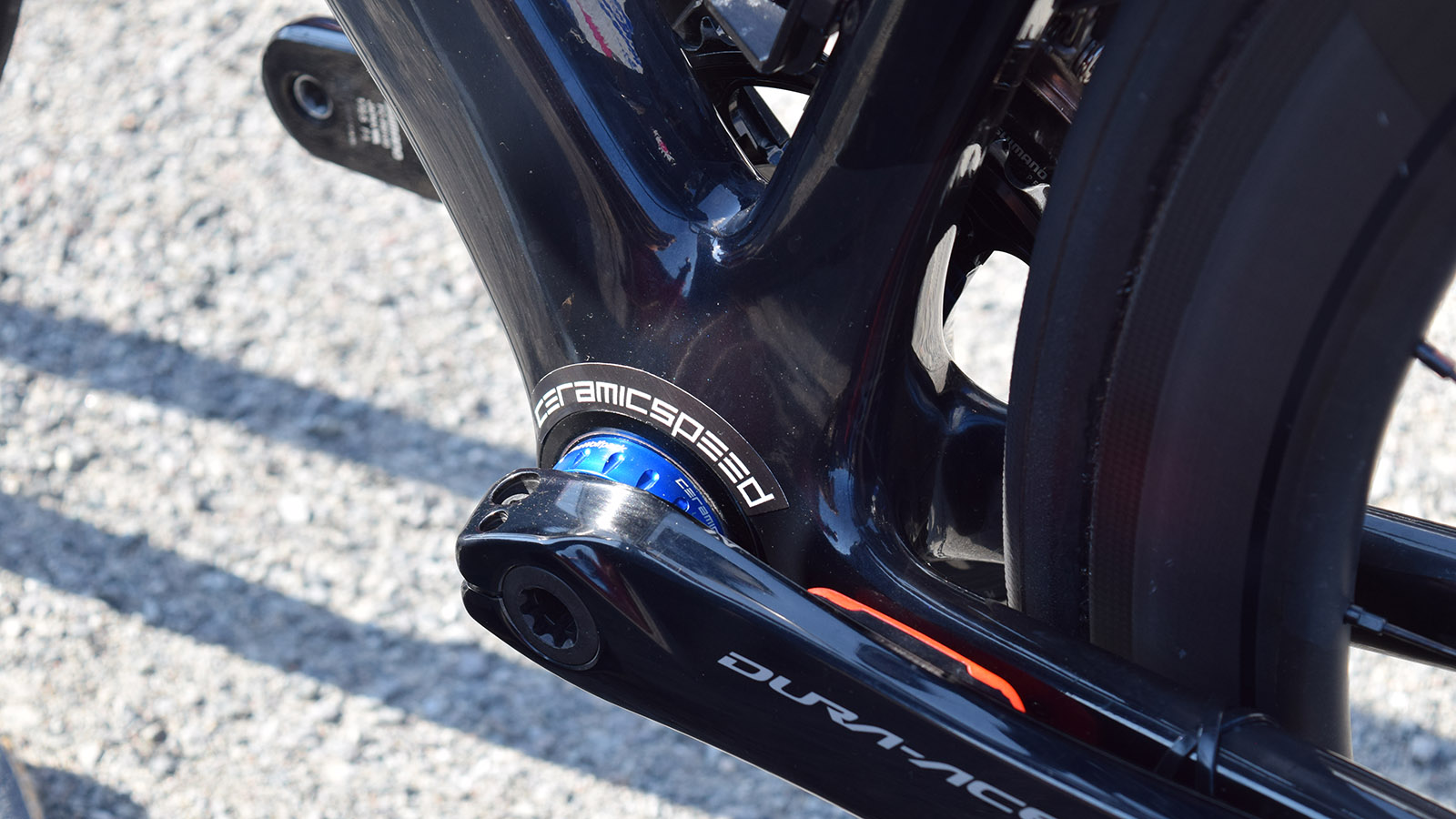
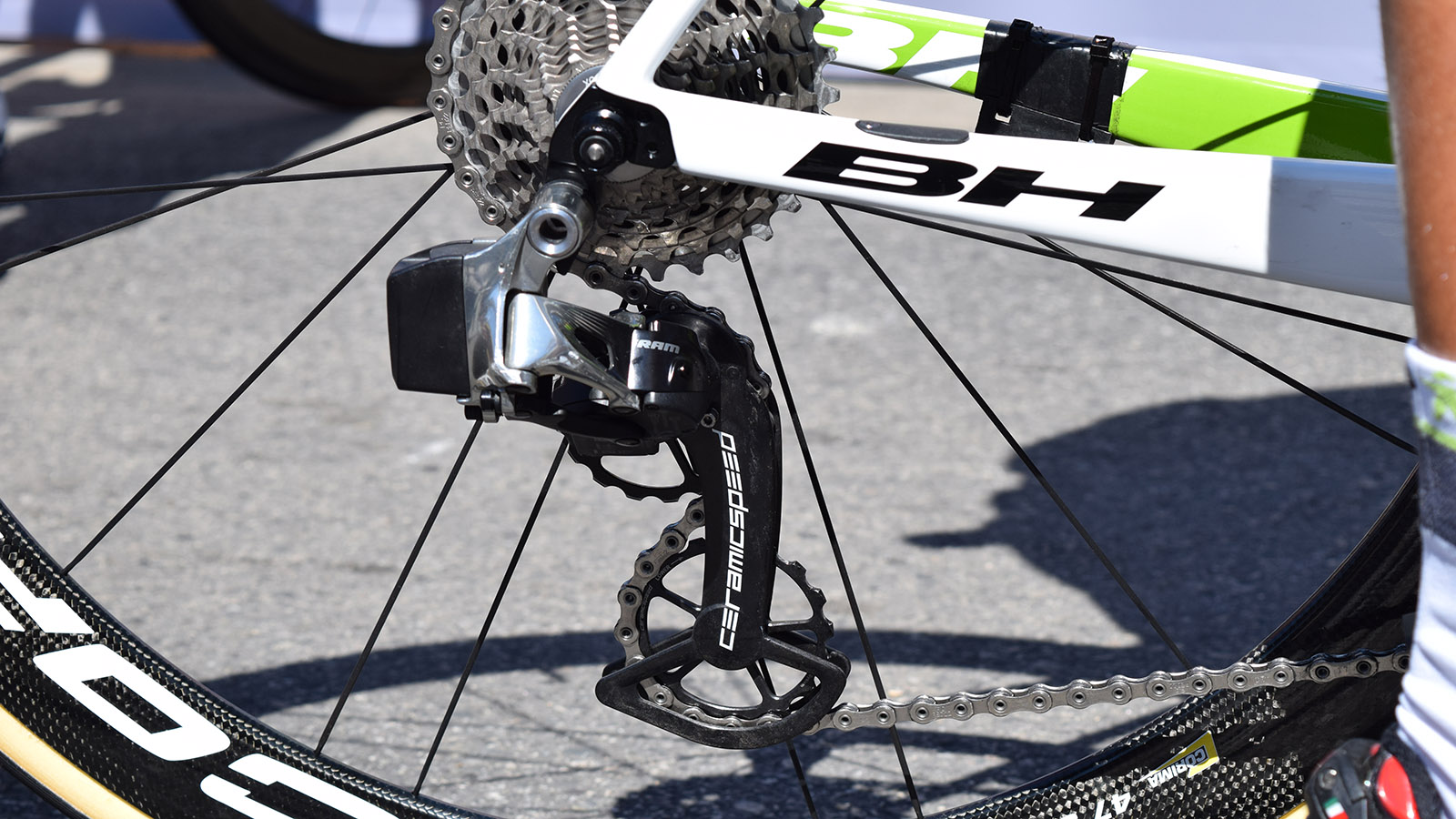
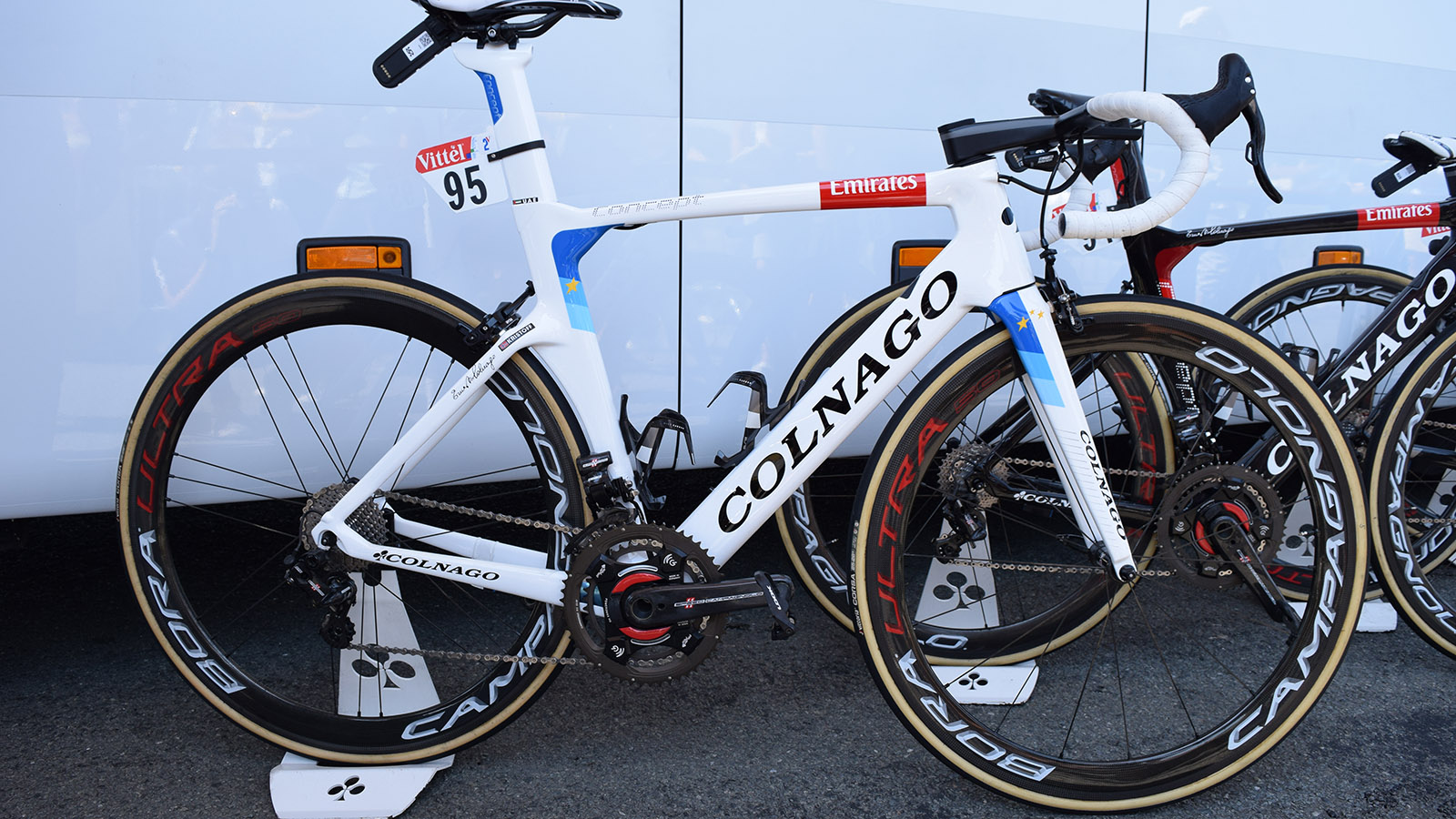
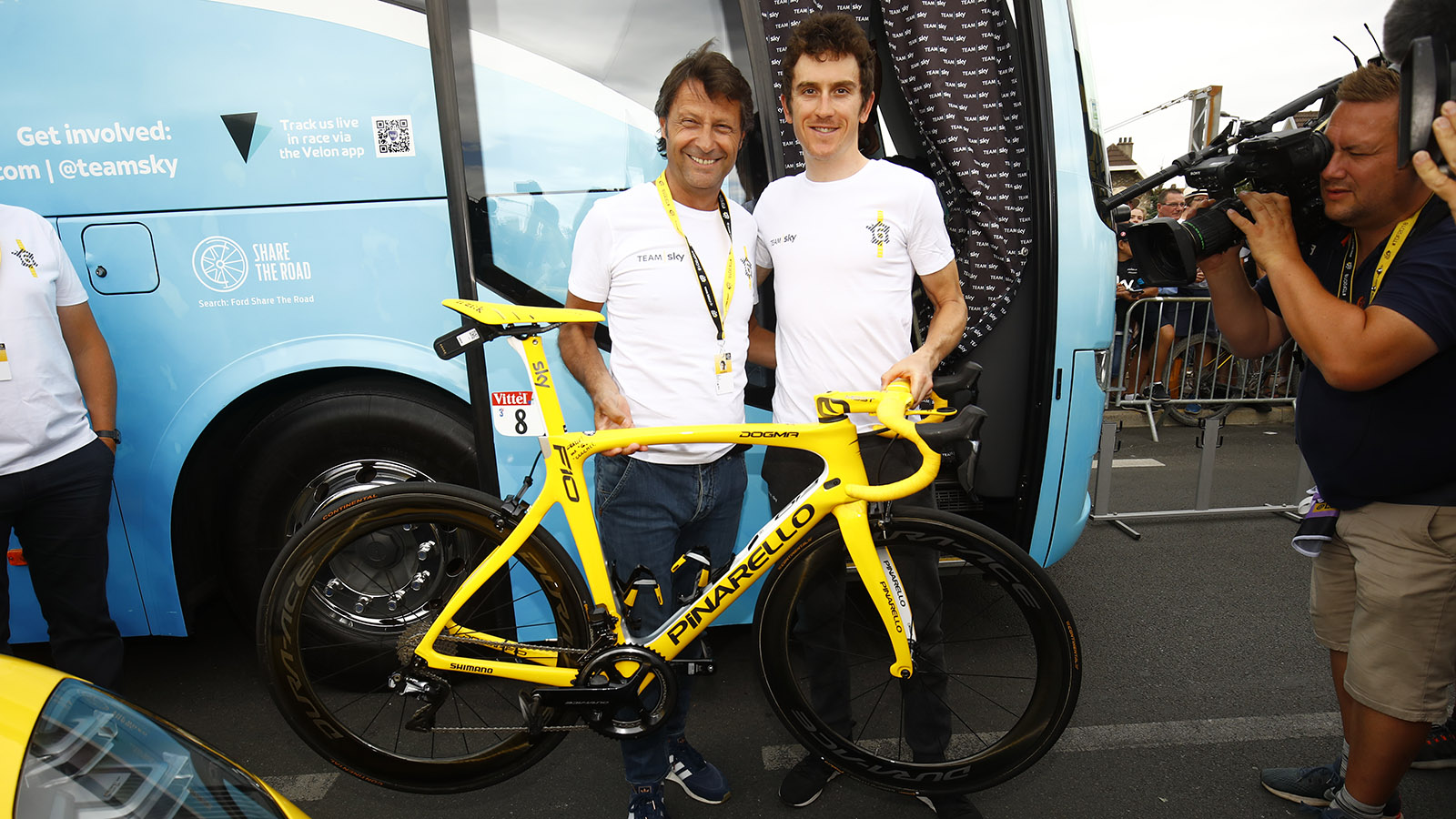
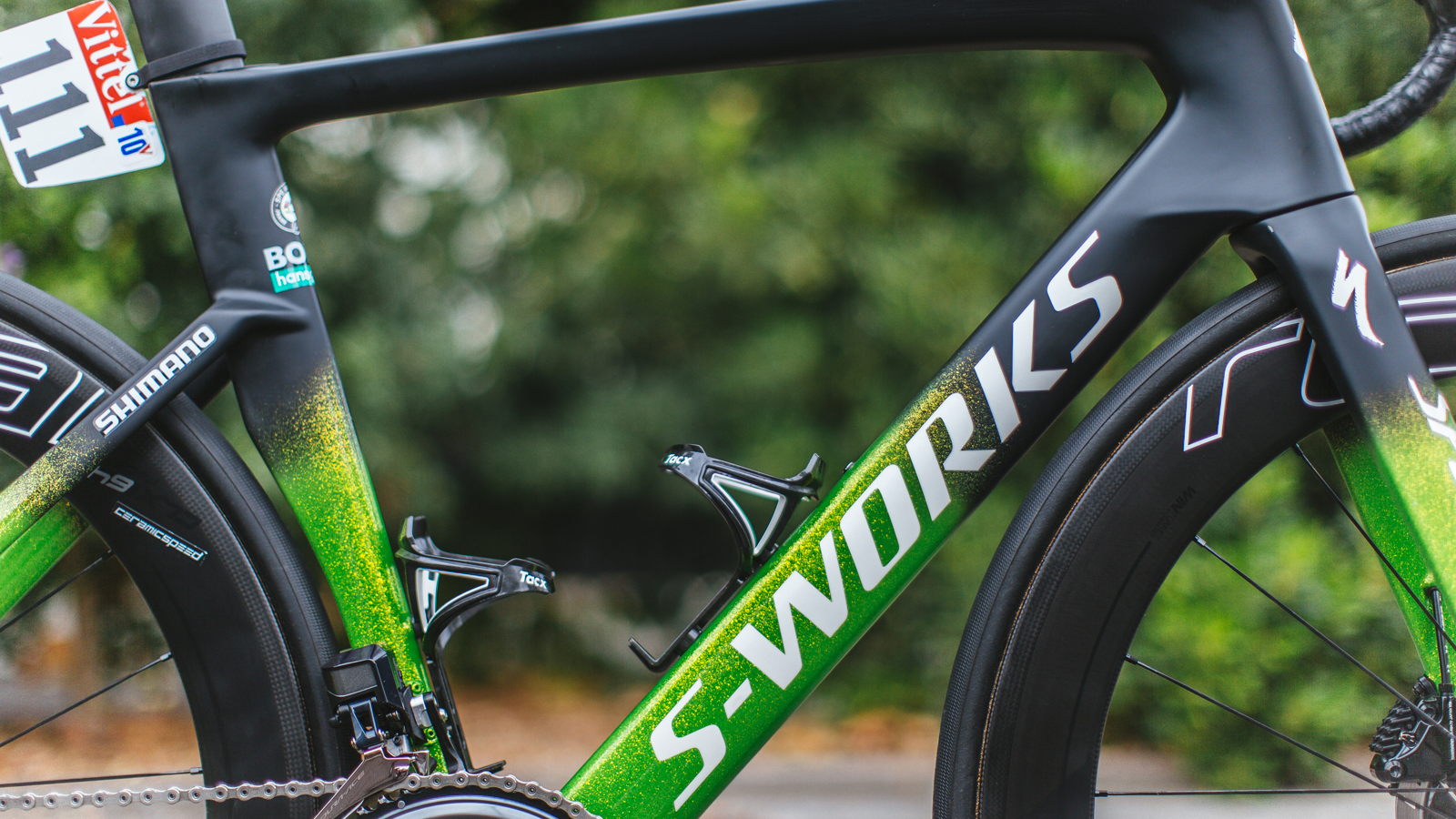
After 21 stages and 3,351 kilometres of racing, 145 of the original 176 riders who started this year's Tour de France crossed the line on the Champs-Elysées for a final time, rounding off nearly a month of racing and a lifetime of preparation for some.
Aside from the racing, new bikes, components, clothing and trends have all emerged at this year's race alongside the usual custom-painted framesets and limited-edition parts that inevitably appear at the biggest race in the world.
Here we take a look at some of the new products, the most successful bikes and components, and collate all of the individual pro bike galleries and tech news from the 2018 Tour de France.
Who won, and with what?
Here we list each stage winner, team, frameset, groupset and pair of wheels.
Stage 1: Fernando Gaviria (Quick-Step Floors), S-Works Venge/Shimano Dura-Ace R9170/Roval CLX
Stage 2: Peter Sagan (Bora-Hansgrohe), S-Works Venge/Shimano Dura-Ace R9170/Roval CLX
Stage 3: BMC Racing, BMC Timemachine/Shimano Dura-Ace R9150/PRO
Stage 4: Fernando Gaviria (Quick-Step Floors), S-Works Venge/Shimano Dura-Ace R9170/Roval CLX
Stage 5: Peter Sagan (Bora-Hansgrohe), S-Works Venge/Shimano Dura-Ace R9170/Roval CLX
Stage 6: Daniel Martin (UAE Team Emirates), Colnago V2-R/Campagnolo Super Record EPS/Campagnolo Bora Ultra
Stage 7: Dylan Groenewegen (LottoNL-Jumbo), Bianchi Oltre XR4/Shimano Dura-Ace R9150/Shimano Dura-Ace R9100
Stage 8: Dylan Groenewegen (LottoNL-Jumbo), Bianchi Oltre XR4/Shimano Dura-Ace R9150/Shimano Dura-Ace R9100
Stage 9: John Degenkolb (Trek-Segafredo), Trek Domane/Shimano Dura-Ace R9170/Bontrager Aeolus XXX
Stage 10: Julian Alaphilippe (Quick-Step Floors), S-Works Tarmac/Shimano Dura-Ace R9150/Roval CLX
Stage 11: Geraint Thomas (Team Sky), Pinarello Dogma F10 X-Light/Shimano Dura-Ace R9150/Shimano Dura-Ace R9100
Stage 12: Geraint Thomas (Team Sky), Pinarello Dogma F10 X-Light/Shimano Dura-Ace R9150/Shimano Dura-Ace R9100
Stage 13: Peter Sagan (Bora-Hansgrohe), S-Works Venge/Shimano Dura-Ace R9170/Roval CLX
Stage 14: Omar Fraile (Astana), Argon 18 Gallium Pro/Shimano Dura-Ace R9150 and FSA/Corima WS+
Stage 15: Magnus Cort Nielsen (Astana), Argon 18 Gallium Pro/Shimano Dura-Ace R9150 and FSA/Corima WS+
Stage 16: Julian Alaphilippe (Quick-Step Floors), S-Works Tarmac/Shimano Dura-Ace R9150/Roval CLX
Stage 17: Nairo Quintana (Movistar Team), Canyon Ultimate/Campagnolo Super Record EPS/Campagnolo Bora Ultra
Stage 18: Arnaud Demare (Groupama-FDJ), Lapierre Aircode/Shimano Dura-Ace R9150/Shimano Dura-Ace R9100
Stage 19: Primož Roglic (LottoNL-Jumbo), Bianchi Oltre XR4/Shimano Dura-Ace R9150/Shimano Dura-Ace R9100
Stage 20: Tom Dumoulin (Team Sunweb), Giant Trinity/Shimano Dura-Ace R9150/PRO
Stage 21: Alexander Kristoff (UAE Team Emirates), Colnago Concept/Campagnolo Super Record EPS/Campagnolo Bora Ultra
Wins by brand:
Frame - Specialized (7 stages), Bianchi (3 stages), Colnago (2 stages), Pinarello (2 stages), Argon 18 (2 stages), BMC (1 stage), Trek (1 stage), Canyon (1 stage), Lapierre (1 stage), Giant (1 stage).
The latest race content, interviews, features, reviews and expert buying guides, direct to your inbox!
Groupset - Shimano (18 stages), Campagnolo (3 stages)
Wheels - Roval (7 stages), Shimano (6 stages), Campagnolo (3 stages), PRO (2 stages), Corima (2 stages), Bontrager (1 stage).
Tyres - Vittoria (8 stages), S-Works (7 stages), Continental (4 stages), Wolfpack (2 stages)
The most successful brands at the 2018 Tour de France are without question Specialized and Shimano, who between them contributed to 18 victories over the 21 stages of the race.
Launching in the week leading up to the Tour, Specialized announced the updated Venge frameset – a disc-only model that claims to be lighter, stiffer, faster and have better handling than the previous iteration, which Marcel Kittel won five stages on during last year's race.
Race-tested for the first time in June at the Critérium du Dauphiné, and later at the Tour de Suisse, Gaviria and Sagan won five stages on the frameset at the Tour, with Julian Alaphilippe adding a further two stages to the Specialized tally with his victories aboard the all-round S-Works Tarmac model.
Both Quick-Step Floors and Bora-Hansgrohe use the same combinations of Shimano groupsets, Roval wheels and S-Works tyres with their Specialized frames, and interestingly both teams also use bottom brackets, headsets and wheel bearings from Danish bearings specialists CeramicSpeed.
Alongside the wins with Specialized bikes, Shimano's dominance at the highest level of the sport continues.
Perhaps it is no surprise, given that 16 of the 22 teams (72 per cent) at the 2018 Tour de France raced with Shimano drivetrain components, and 18 of the 21 stages (85 per cent) were subsequently won with drivetrains from the Japanese components specialists.
Italian brands were also present at the French Grand Tour. Framesets from Italian brands were responsible for six stage victories, two of which were also achieved with Campagnolo groupsets and wheels, while Nairo Quintana's victory for Movistar added another notch for Campagnolo.
Vittoria tyres are also due a credible mention: they were first across the line for an impressive eight stage victories.
SRAM were the big losers of the 2018 race, however. Although only used as drivetrain components by two teams, in Katusha-Alpecin and Fortuneo-Samsic, the stars of these teams – Marcel Kittel and Warren Barguil – won a third (7 out of 21) of the stages at last year's Tour, yet weren't able to rack up a single stage between them this year.
Accessories: CeramicSpeed and K-Edge
As already mentioned, Danish firm CeramicSpeed provides Quick-Step Floors and Bora-Hansgrohe with the headset, wheel and bottom bracket bearings in an era in which seemingly every watt counts, or at the very least is counted.
CeramicSpeed also partner officially with AG2R La Mondiale, although while the French WorldTour team don't use CeramicSpeed bearings in their Mavic wheels, they do use the company's eye-catching over-sized pulley wheel system – OSPW – on their rear derailleurs.
The three official partners of CeramicSpeed are not the only teams to use the company's components.
Astana use, and pay for, the same OSPW systems used by AG2R La Mondiale on the majority of their bikes, as well as bottom brackets. Cofidis also have all of their bottom brackets fitted with CeramicSpeed bearings, and for time trials were seen with some of the company's UFO chains.
EF Education First-Drapac p/b Cannondale and Direct Energie were two more teams seen to be using the OSPW system, with Jesus Herrada (Cofidis) and Warren Barguil (Fortuneo-Samsic) also seen using the rear derailleur upgrade on their Campagnolo and SRAM drivetrains, respectively.
It is also understood that one of the biggest names in the sport, and a 2018 Tour de France podium finisher, uses CeramicSpeed bearings in his bike's components although ****Cyclingnews***** is unable to verify this claim.
The prevalence of the company's components at the race speaks volumes for their products, and is backed up by the eight stage wins by riders equipped with CeramicSpeed bearings.
K-Edge are another components and accessories manufacturer to earn the badge of being used by almost everyone at the Tour de France.
Mostly known for their out-front computer mounts, the Idaho-based firm also produces chain catchers and number plate mounts, with at least eight teams using the aluminium accessories during this year's race.
New pro trends
It only takes a few big-name cyclists to break from tradition with new technology, setups or components before the whole peloton, and in turn consumers, are all on the same bandwagon.
A key trend at this year's Tour de France was several of the key GC riders opting to run 11-30 cassettes during the opening nine stages alongside the traditional 53/39 chainrings on Shimano drivetrains. Almost exclusively, 11-28 cassettes are usually used on flat or rolling stages, and so the adoption of 11-30 cassettes could be due to multiple reasons.
Shimano Dura-Ace R9100-series rear derailleurs allow for up to 30-tooth cassettes as standard, and it's likely that the option of the extra cog is welcomed for warming up, cooling down or even just to roll up the ramp to the sign-on ahead of the stage each morning. Regardless of each team or rider's reasoning, gone are the days of tight rear cassettes, and even an 11-25 cassette is a rare sight in any stage bar the flattest of races such as stage 9 into Roubaix.
Ahead of this year's race, five aero-specific framesets were launched in the S-Works Venge, Trek Madone, Cannondale SystemSix, Ridley Noah Fast and BMC Timemachine Road.
Usually used by just each team's sprinters and rouleurs, entire teams, including GC riders and climbers, adopted the new fast bikes for this year's race, with some of the bigger riders sticking with the latest aero machines even for mountain stages with masses of climbing.
This adoption of aero machines is a likely result of aero framesets, which were traditionally heavier and less comfortable than all-round bikes, becoming lighter, more comfortable and vastly more efficient than their less-aero counterparts.
Of the five new aero bikes, three are made exclusively in disc-brake versions, and the remainder are available as a disc-brake option. Around half of the teams used disc-brake-equipped bikes for at least some of the stages at the 2018 Tour de France, and Trek-Segafredo became the first team in the race's history to exclusively use disc-brake-equipped bikes on all of the regular (non-time trial) stages of the race.
Campagnolo disc brakes were also used for the first time at a Grand Tour during this year's Tour, and it's expected that the adoption of the braking technology will become even more widespread in the 2019 season.
Clothing, helmets, shoes and glasses
Cycling jerseys have come full circle in 2019. First quarter-length zips on jerseys were commonplace, then half-length ones came in before full-length zippers were the standard finish on modern cycling jerseys. UAE Team Emirates' clothing provider Champion Systems has bucked this trend, though, providing their riders with zipless jerseys at this year's race, which claim to be more aerodynamic and lighter than their full-length zipper counterparts.
Custom shoes, helmets and sunglasses were also on show at the 2018 Tour de France, with an array of riders also arriving at the French Grand Tour aboard custom-painted framesets.
Scroll down to see all of the tech galleries, news and features from the 2018 Tour de France.
Tour de France 2018 tech
- Tour de France tech: The biggest bikes and components on the biggest stage
- Peter Sagan's Specialized S-Works Shiv TT – Gallery
- Tour de France bikes: Stefan Kung's BMC Timemachine Road 01 - Gallery
- Peter Sagan and Specialized drop second Sagan Collection at Tour de France
- Tour de France bikes: Fernando Gaviria's Specialized S-Works Venge – Gallery
- Campagnolo disc brakes used for the first time at the Tour de France
- Tour de France bikes: Peter Sagan's Specialized S-Works Venge - Gallery
- Mitchelton-Scott celebrate Scott's 60th birthday at Tour de France
- Tour de France bikes: Vincenzo Nibali's Merida Time Warp TT — Gallery
- Sagan, shoes and speedsuits - Tour de France TTT tech gallery
- Tour de France bikes: Greg Van Avermaet's custom-painted BMC Teammachine – Gallery
- Tour de France bikes: Kwiatkowski's custom Pinarello Dogma F10 X-Light — Gallery
- UAE Team Emirates wear zipless jersey at Tour de France
- Tour de France bikes: Dan Martin's Colnago V2-R - Gallery
- Tour de France bikes: Mark Cavendish's custom-painted Cervelo S5 – Gallery
- Tour de France does Paris-Roubaix: huge tech gallery
- Tour de France bikes: Vincenzo Nibali's custom-painted Merida Reacto — Gallery
- Tour de France bikes: Sylvain Chavanel's Wilier Cento10 Pro — Gallery
- Tour de France bikes: Adam Yates' Scott Addict RC - Gallery
- Tour de France bikes: Rigoberto Uran's Cannondale SystemSix — Gallery
- Tour de France bikes: Nairo Quintana's Canyon Ultimate CF SLX — Gallery
- Tour de France 2018: massive race tech gallery
- Top five custom Tour de France 2018 bikes
- Tour de France bikes: Romain Bardet's custom-painted Factor O2 - Gallery
- Tour de France bikes: Tom Dumoulin's Giant TCR – Gallery
- Top 5 custom road shoes at the Tour de France
- Tour de France bikes: John Degenkolb's Trek Madone Disc - Gallery